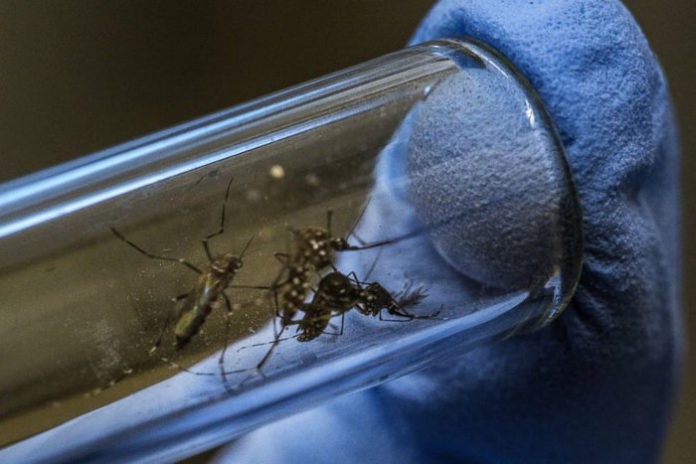The Aedes aegypti mosquito, the more abundant of the two species known to spread the Zika virus, are less able to spread the virus if they are exposed to the bacteria, according to a study published in the medical journal Cell Host & Microbe.
The bacteria is already being used on the same mosquitoes as a way to curb the spread of the dengue virus, which, like Zika, is a flavivirus.
Mosquitoes containing this bacterium did not become infected with the Zika virus when given saliva from other infected mosquitoes, researchers from the Rene Rachou-Fiocruz Research Center in Brazil discovered. When they did the same test in mosquitoes without the Wolbachia bacteria, approximately 85 percent of mosquitoes became infected with the Zika virus.
“The results presented here indicate that Wolbachia-infected mosquitoes represent a realistic and effective option to combat the Zika virus burden in Brazil and potentially in other countries and should be considered as an integral part of future control efforts,” the authors concluded.
Dr. William Schaffner, an infectious disease expert at Vanderbilt University Medical Center, told that experimental treatments like this one may be key to stopping the Aedes aeygpti mosquito, which is notoriously hard to eradicate.
“These are clever ways to try to interrupt the transmission of the virus in an ecologically sensitive way, while we’re waiting to get a vaccine developed,” Schaffner said.
The Aedes aegypti mosquito can live indoors and bite during the day, Schaffner noted, making it extremely difficult to kill with normal outdoor spraying. Spraying may need to be used with other experimental treatments, including used genetically modified mosquitoes, to cut down on the population, he said.
“If you look realistically at what we have currently available in all of our local municipal public health jurisdictions … funding for mosquito abatement, it varies enormously from municipality to municipality,” Schaffner said. “It’s focused on nuisance mosquitoes and not disease-causing mosquitoes and Aedes aegypti is much more tenacious,” than other mosquito species.
More information is needed about the feasibility of infecting the mosquitoes with the bacteria, since the cost and technology needed may make it impractical outside of a lab setting, Schaffner said.
Source: ABC






























